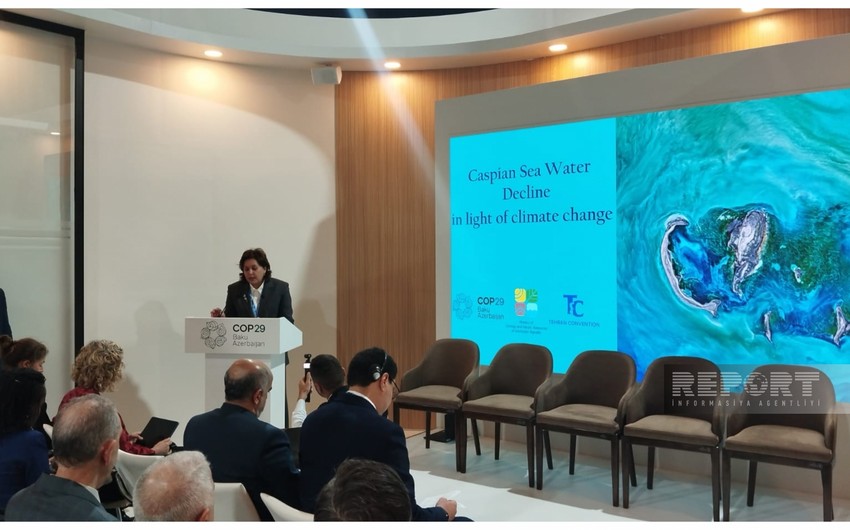The Caspian region represents a unique natural environment with rich biodiversity and ecosystem, Azerbaijani Deputy Minister of Ecology and Natural Resources Umayra Taghiyeva stated at an event titled "Caspian Sea Water Decline in light of climate change," Report informs.
Taghiyeva noted that in recent decades, the Caspian Sea has faced serious ecological problems: "The sea level is close to its lowest point in observation history."
"Extreme weather events, increased frequency of natural disasters, and changes in biodiversity - all these require joint efforts to adapt. Over the past 30 years, the Caspian Sea's level has decreased by approximately 2.5 meters. In recent years, the annual decrease has reached an alarming 20-30 centimeters. This rapid shallowing creates serious ecological and economic risks that require urgent measures," Taghiyeva stated.
According to her, the UNEP report "Fluctuations in Caspian Sea Level and Climate Change" helps understand the complex link between climate change, regional hydrology, and sea level decline. Among the key findings, there is a need for coordinated transboundary research to address various impacts of sea level changes on the ecosystem, economy, and infrastructure.
The deputy minister said that the Caspian Sea's ecological problems require coordinated and decisive action: "The adoption of a declaration by Caspian littoral states on strengthening cooperation in response measures to the decrease in water level in the Caspian Sea will be an important outcome of this event. It demonstrates our common regional commitment and defines a joint action plan supported by expert knowledge, technologies, and financial assistance."
Taghiyeva emphasized that joint action is the only way to ensure a healthy and prosperous future for the Caspian region.


 https://static.report.az/photo/bc551efc-e656-3132-a1a7-e8f053efefc8.jpg
https://static.report.az/photo/bc551efc-e656-3132-a1a7-e8f053efefc8.jpg

